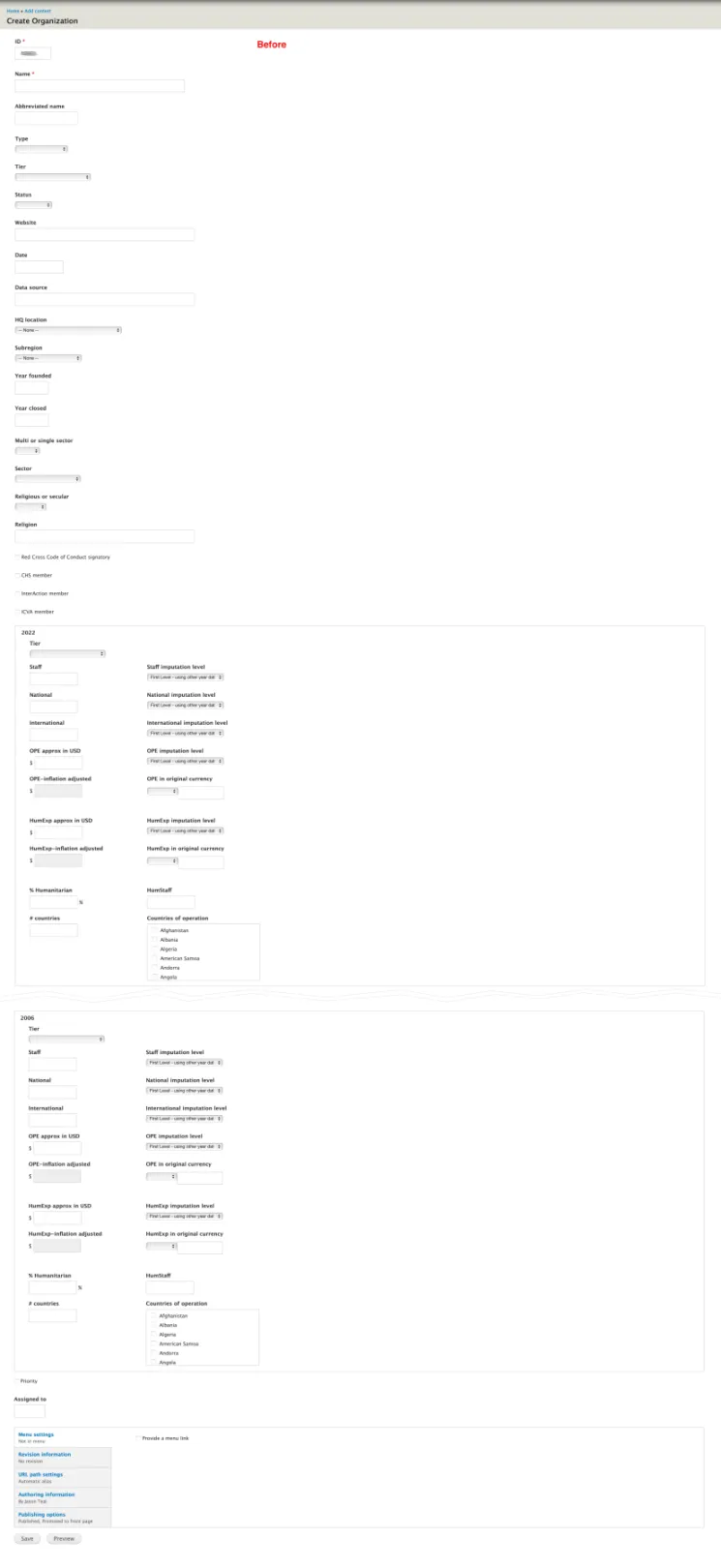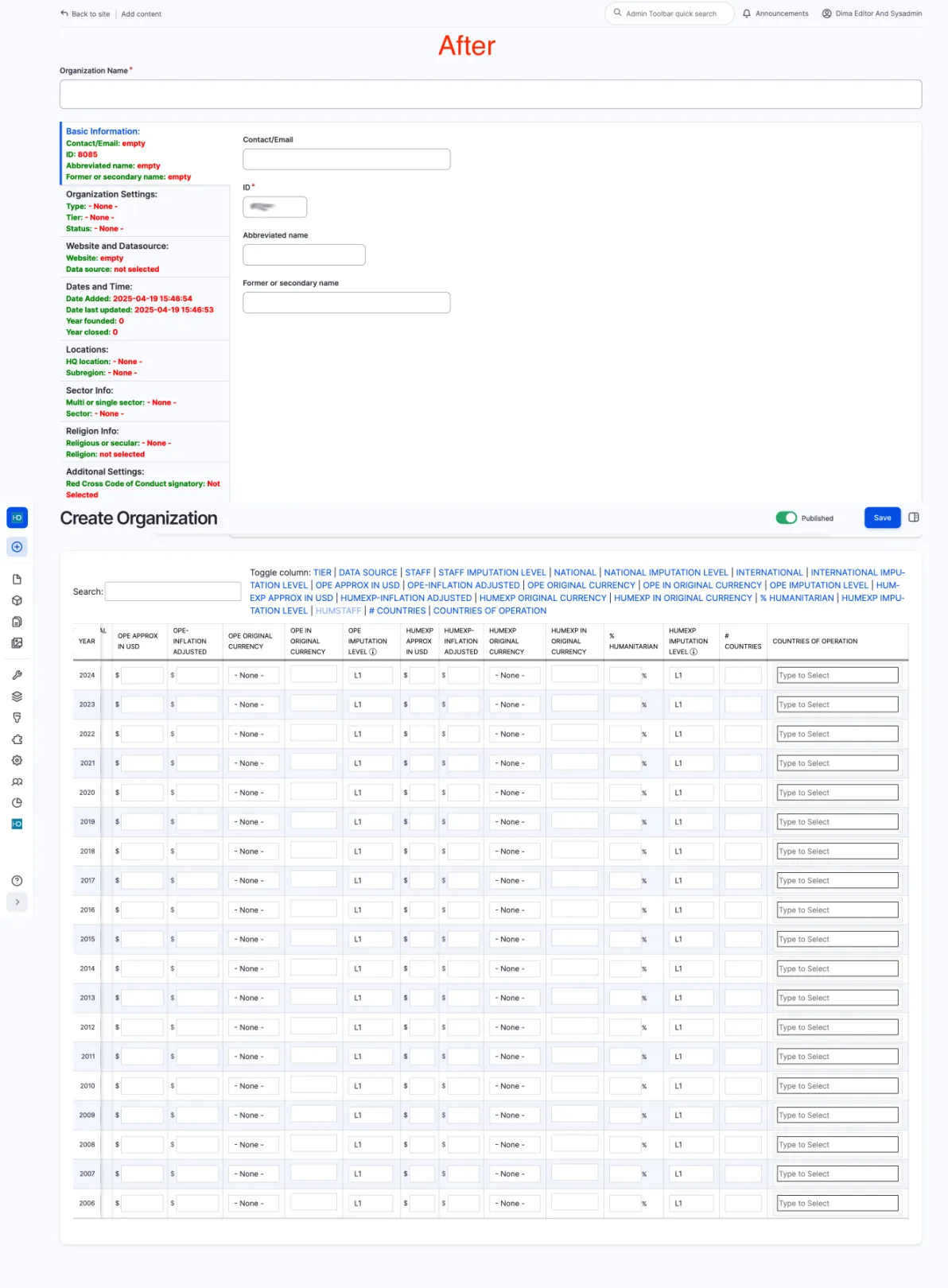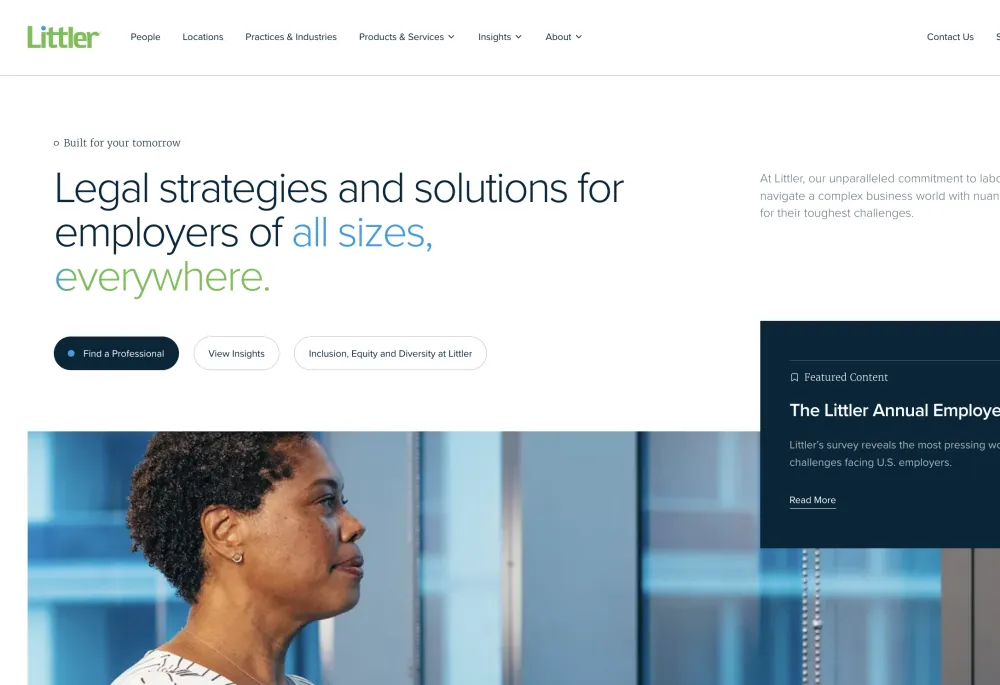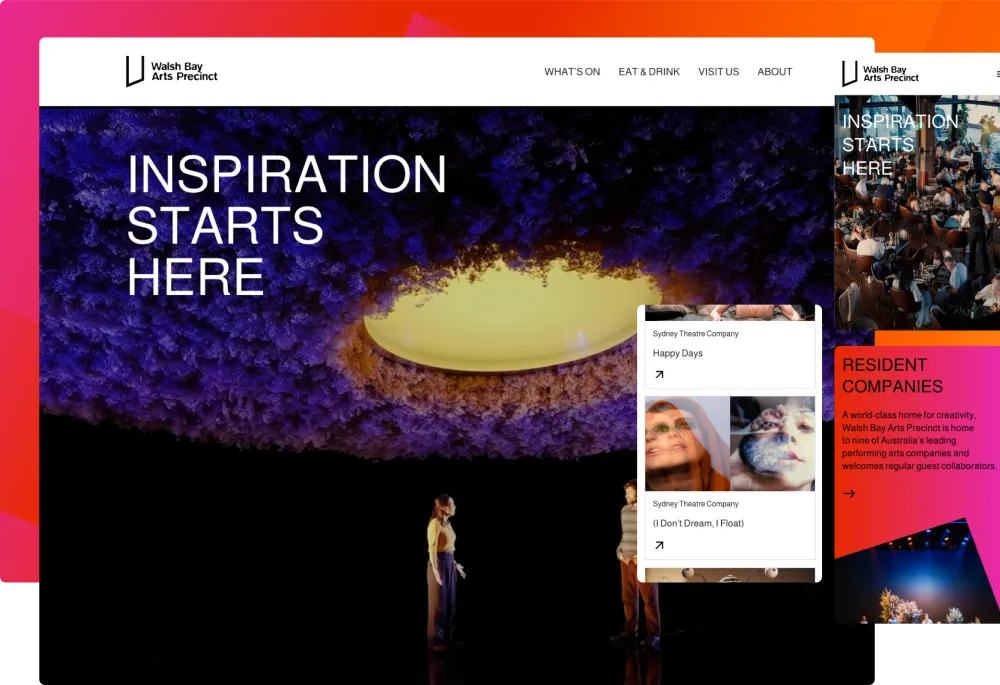Humanitarian Outcomes (HO) is a group of highly educated and experienced former aid workers, policy makers and researchers who advise humanitarian aid agencies and donor governments through evidence-based analysis and systematic research. Their work covers the institutional, financial, and operational mechanics of the international humanitarian system and they aim to provide practical solutions to their clients enabling them to deploy aid resources more effectively. Because iTech4Web knew their Drupal 7 website would be vulnerable due to Drupal’s termination of support for this old version, we suggested that Humanitarian Outcomes upgrade their data-heavy website. Because of the complexity of the data presentation on their site, as well as the fact they use their site to exchange secure data, the upgrade process would not be simple.
About the project
Drupal’s Core Migration API Is Worth Investing In
When faced with project-specific pitfalls using the Core Migration API some developers might start writing their own migration with custom code or employing other workarounds. It is far more efficient, however, to take the time to understand and solve any issues within the Drupal Migration API process since it allows us to leverage the full power of the Migration API including migration progress tracking, ability to revert the migration, update or perform a delta migration, or map different entities with each other. In this project, we were able to tune and optimize the migration generated by the Drupal Core Migration module to execute a highly efficient migration for the HO site. This allowed us to go beyond the initial scope and provide even more value to Humanitarian Outcomes (see below) without increasing the project fee.
Leveraging the Drupal Core Migration API allowed us to complete a complicated migration under budget. This savings gave us extra time to beyond the scope and exceed our client’s expectations.
In our discussions with the HO team to understand some problems maintaining their Global Database of Humanitarian Organisations, we noticed that the layout over several different pages was tedious and caused needless frustration to the maintainers of this core portion of HO’s site. The flexibility of Drupal allowed a straightforward conversion from the existing form pages to a single, more structured one without affecting the existing calculation logic. We realized we could:
- streamline the data entry form
- abandon the flat form that spanned many pages;
- move to a spreadsheet-like experience using Drupal Table Theme templates;
- manage the data in the tables using some third party JavaScript libraries;
- simplify the form saving process without requiring any page reloads by adding some AJAX behavior using Drupal AJAX framework.
As a result, the HO team got an easy to use, readily verifiable, and quickly saved data entry form. They were ecstatic about the overhaul remarking that “This single change is going to save me so much time and frustration!”
Back to topPaying It Forward
An upgrade often presents several challenges, and one of those is when a site relies on functionality from community-contributed modules that have not been migrated to new Drupal versions. Seeing an opportunity to make a contribution to the larger Drupal community, iTech4Web completed patches to several modules so they work seamlessly in Drupal 11 — not only giving Humanitarian Outcomes their required functionality but also sharing the patches on Drupal.org.
Back to topGoing Beyond the Scope
Due to our optimized Drupal migration process requiring less effort than we had budgeted, we were able to address an item on Humanitarian Outcomes wish list. Abandoned by a previous developer team over a year before, we streamlined how data flows into the Digital Research Archive section of the site. The existing design required staff at Humanitarian Outcomes to prepare a CSV file that stored the data, which was then rendered on the website. This consumed unnecessary expense for network traffic and had future maintenance costs. Without any increase in the project budget, iTech4Web integrated the database directly into Drupal and provided the UI/UX for managing the data of the Digital Research Archive in the Drupal backend.
Back to topDrupal’s flexibility and extensibility helps Humanitarian Outcomes execute their mission as efficiently as possible.
Why Drupal was chosen
Project Scope
- Upgrade software from Drupal 7 to Drupal 11
- It might have been more straightforward to upgrade to Drupal 10, but Drupal 11 was released at about the same time as the project start. Choosing Drupal 11 gave Humanitarian Outcomes a more “future proof” site, although it added some complexity to the project.
- Improve Organizations Management Workflow
- Humanitarian Outcomes hosts the Global Database of Humanitarian Organisations on their website. This entails keeping up-to-date records of organisations around the world who provide aid in humanitarian crises. The workflow to update the data on each of these organizations was slow and scattered across several pages. We saw an opportunity to make this part of the website much easier to manage.
- Reduce the costs for website/email infrastructure
- After a thorough site assessment, iTech4Web can often identify unused capacity that can be cut, lowering their client’s operating expenses.
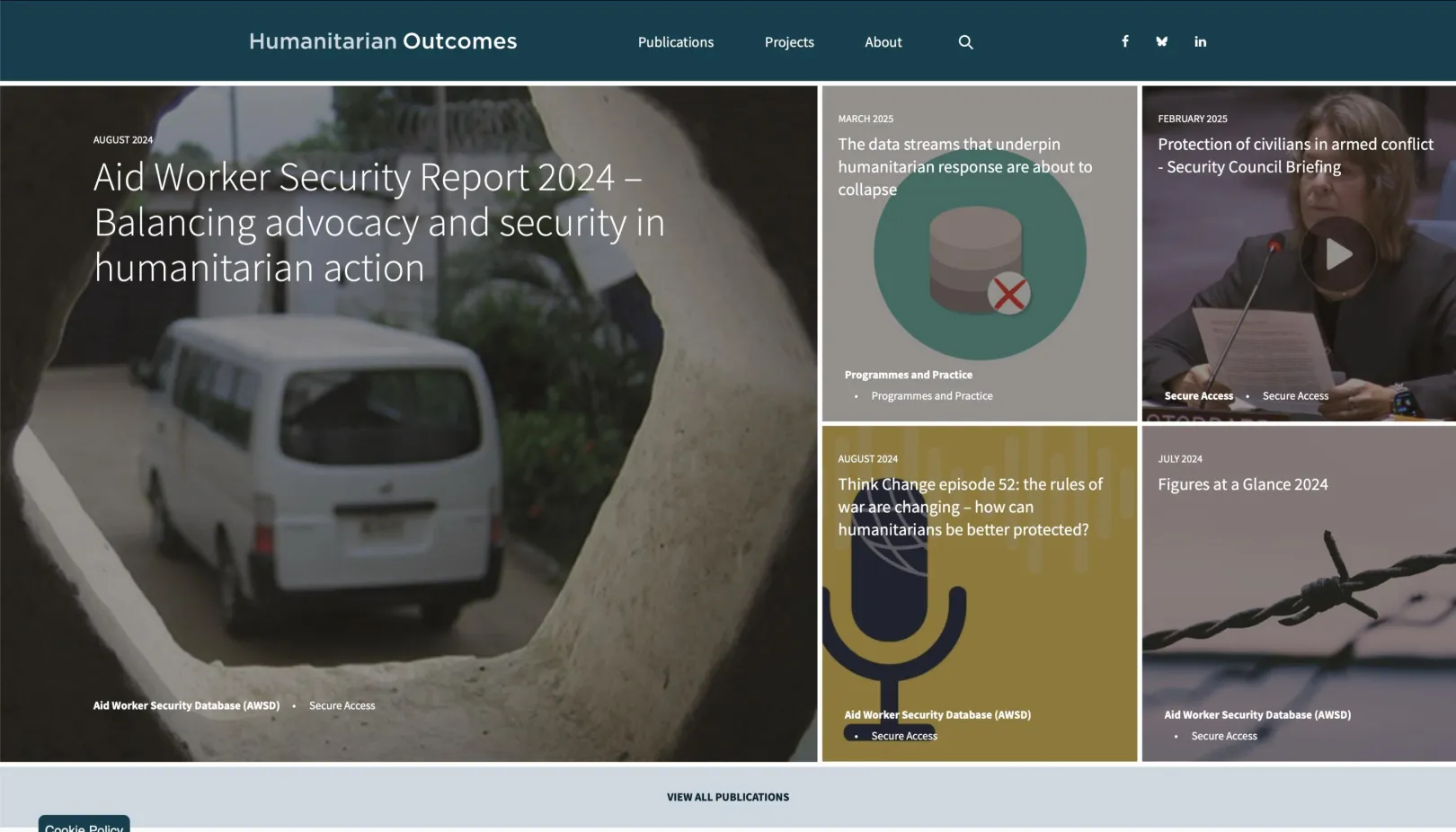
Technical Specifications
Drupal version:
